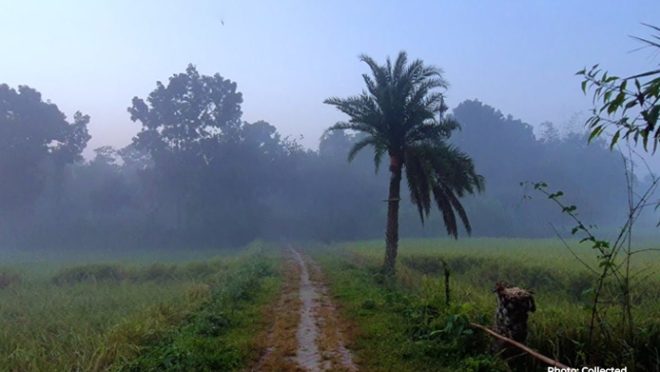Winter arrives late in Bangladesh: How long would we ignore climate change?
Winter arrives late in Bangladesh: How long would we ignore climate change?

It’s already November, but where is that familiar winter chill? In Bangladesh, the wait for winter seems to stretch longer each year, and this time, it’s no different. For those who remember the brisk Decembers of the past, the current weather feels oddly out of sync.
According to the Bangladesh Meteorological Department (BMD), winter is expected to make its presence felt only in January, pushing back the season’s onset yet again.
The forecasts are clear: while a gradual temperature drop is expected, daytime and nighttime temperatures will likely stay higher than normal throughout December. In the northern districts like Panchagarh, foggy mornings are beginning to hint at winter’s arrival, but the capital and most other regions remain enveloped in an unseasonal warmth.
In the next months, a few mild to moderate cold waves are expected, with temperatures ranging from 8 to 10°C, according to the met office. However, the much-awaited severe cold spells may not hit until January.
Delayed winters: A warning?
There are larger climatic disruptions that are causing this delay, so it’s more than simply an annoyance.
Storms were predicted to continue into January, adding to the exceptional 29% increase in rainfall seen in October. The weather is notoriously unpredictable, and it might get even more complicated as we head into winter if low-pressure systems in the Bay of Bengal develop into depressions or cyclones.
Bangladeshi winters are known for providing much-needed relief from the scorching heat and humidity of the summer monsoons.
The onset of winter feels like a distant memory now that temperatures refuse to drop and weather patterns are getting unstable. This year’s slow winter, which meteorologists say is due to changes in wind patterns, has seen sporadic shivers rather than the deep, encompassing cold of previous years.
COP29 and Bangladesh: This is a wake-up call
The sluggish arrival of the winter in Bangladesh is an alarming indicator of the critical importance of immediate global action on climate change as the international community sits in Baku for the 29th United Nations Climate Conference (COP29).
The goals of the Paris Agreement, particularly limiting global warming to 1.5°C over pre-industrial levels, will be the centre of attention at this year’s conference, which has begun on 11 November and will continue till 22 November.
Countries like Bangladesh might face catastrophic consequences if global warming exceeds this threshold between 2030 and 2052, according to current forecasts.
Now is the time, as a low-lying nation, to prepare for the consequences of climate change, which include, of course, delayed winters, changing monsoon patterns, and increasing sea levels. Despite having a little impact on world carbon emissions, Bangladesh is one of the most climate-vulnerable countries.
There is no denying that COP29 has its impact on Bangladesh. The country’s goal is to get help to lessen the effects of climate change, so it’s targeting funds to make people more tolerant and flexible. As the globe witnesses the far-reaching effects of climate change and the world’s weather become more unpredictable, the need for immediate and serious climate pledges is greater than it has ever been.


